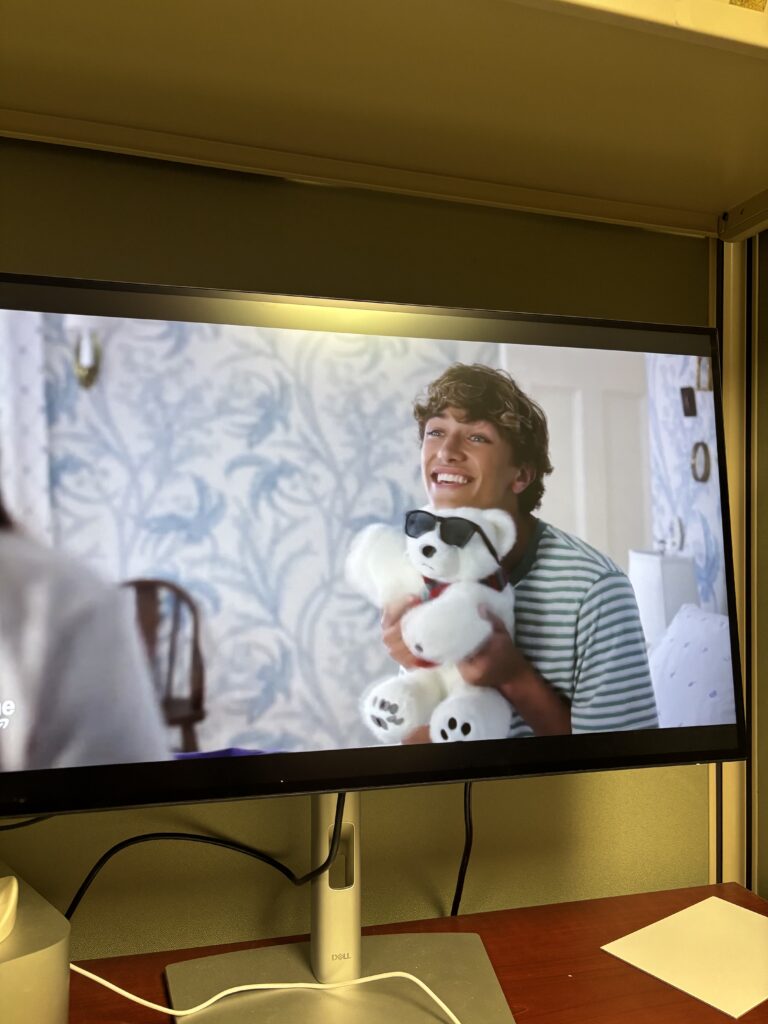Beatrice Fleurant
Online Editor
A good TV show not only connects with audiences but also transports them into its world. Viewers become fans, who then connect with others to dive into theories, create fan art and build online communities open to anyone who loves the show.
But what happens when the lines between fiction and reality blur? With many new and returning summer shows, there has been a rise in cyberbullying targeting casts and crews.
The highly anticipated return of “The Summer I Turned Pretty” was met with excitement for its final season. On July 16, the two-episode premiere launched on Amazon Prime with record-breaking numbers. Deadline reported that the show drew 25 million viewers globally in its first seven days. Season 3 viewership rose 40% compared to Season 2’s opening week and overall viewership has tripled from Season 1 to Season 3, according to Amazon. Before the release, fans were also given a surprise drop.
The official Instagram account for “The Summer I Turned Pretty” released a warning and guidelines for viewers.
“Cousins is our safe place,” the post began. “Everything good, everything magic. Let’s keep the conversation kind this summer.”
The next slide outlined community guidelines: “We have a ZERO tolerance policy for bullying or hate speech.” The post warned that anyone engaging in hate speech, targeting cast and crew, or harassing and doxxing other members of the fan community would be banned from the account.

For many fans, this was the first time a show directly addressed the issue of cyberbullying toward its actors. The warning also prompted some cast members to speak out.
Gavin Casalegno, who plays Jeremiah, one of Belly’s love interests, acknowledged the pressure after being deemed “the most hated boyfriend on the internet” in an interview with The New York Times.
“I don’t think there’s a single human being in the world who can carry the emotional negativity to the degree that stuff like this happens,” Casalegno said. “And I think that’s why Amazon did a good job of stepping in and being like, ‘Hey, no bullying.’ Though not really going so well.”
But the rise of cyberbullying in fan communities did not start this summer. Many celebrities have experienced it since the beginning of their careers such as Demi Lovato.
Being in the center of the spotlight since her childhood Lovato has experience fans commenting on her apperance which led to her going off the grid and spoke against in 2010 in Seventeen Magazine.
“When will people understand that verbal abuse is just as serious as physical abuse? How many precious lives will it take to put an end to the hurt caused by cyber abuse?” Lovato said.
“I think that some people use bullying as a way to fit in, and I’ve noticed it’s not just the “cool” kids doing it anymore.
Amazon has faced similar issues in the past. Amazon TV chief Vernon Sanders told Variety the company felt the need to speak up after dealing with comparable situations, including racially charged comments directed at the cast of the TV show “The Lord of the Rings: The Rings of Power” when it premiered in 2022.
“We’ve had similar situations in the past with adaptations, where there is a fanbase out there that I think can get rowdy, and it sometimes can blur the line between characters and actors or overstep,” Sanders said.
“And so we really appreciate them and appreciate their passion, but we’re trying to be more proactive about setting expectations of what we want to encourage and maybe what we find not appropriate. And I think our creators and our cast really appreciate us taking the proactive stance there.”
As fandoms grow and evolve in the digital age, so does the responsibility of platforms and studios to protect those behind the screen. Shows like “The Summer I Turned Pretty” remind us that while passionate fan engagement can build communities, it can also cross the line into harmful territory.
With studios beginning to set firmer boundaries and speak out against online harassment, a new precedent is being set one where kindness, not cruelty, shapes the conversation. As audiences continue to immerse themselves in the stories they love, maintaining respect for the real people behind the characters is essential to keeping the magic alive.







